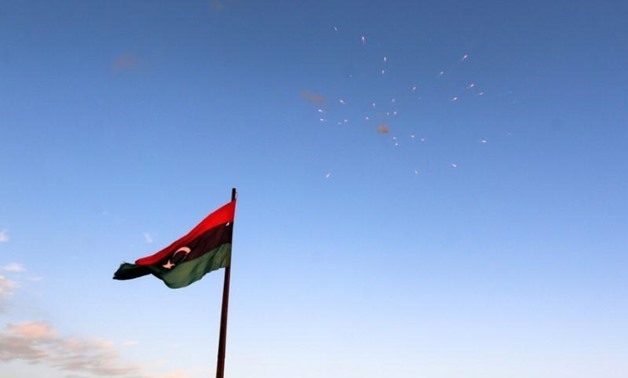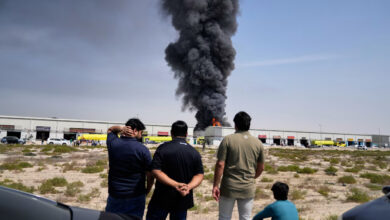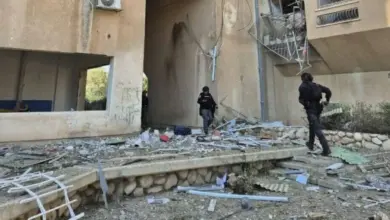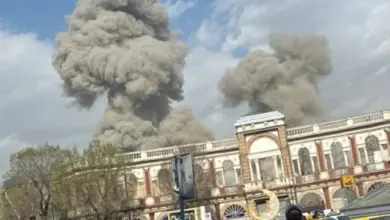
CAIRO (AP) — Libyan authorities released one of the country’s most wanted human traffickers less than four months after his arrest in Tripoli, security officials said Monday.
Abdel-Rahman Milad, who was sanctioned by the UN Security Council, walked free Sunday, following a decision by prosecutors late last month, they said.
Milad, better known by his alias Bija, was seen after his release in his hometown of Zawiya in western Libya, where he had commanded a coast guard unit.
The officials did not reveal more details. They spoke on condition of anonymity because they were not authorized to brief the media.
A spokesman for the country’s Interior Ministry declined to comment.
While in detention, the former UN-supported government in Tripoli in March promoted Milad and others for their participation in the fighting to repel an attack on the capital by eastern Libya forces, according to documents obtained by The Associated Press.
When arrested in December, the Interior Ministry in western Libya said Milad was wanted on charges of human trafficking and smuggling of fuel.
“His release was not unexpected,” said Hussein Baoumi, Libya and Egypt researcher at Amnesty International. “The Libyan authorities have failed to demonstrate that they are conducting an effective and transparent investigation with a view of referring him to a fair trial.”
Baoumi urged Libya’s newly appointed interim government to ensure that Milad and others believed to have committed crimes and abuses against refugees and migrants, face justice.
Libya has been plagued by corruption and turmoil since a NATO-backed uprising toppled and killed longtime dictator Moammar Gadhafi in 2011. Since then, the oil-rich country has emerged as a major conduit for people from Africa and the Middle East fleeing wars and poverty and hoping to reach Europe by crossing the Mediterranean Sea.
In June 2018, the Security Council imposed sanctions on Milad and five other leaders of criminal networks allegedly engaged in trafficking migrants and others from Libya. At the time, Milad was described as the head of a coast guard unit in Zawiya “that is consistently linked with violence against migrants and other human smugglers.”
UN experts monitoring sanctions claimed Milad and other coast guard members “are directly involved in the sinking of migrant boats using firearms.”
Milad has denied any links to human smuggling and said traffickers wear uniforms similar to those of his men.
Over the past two years, he moved freely in western Libya and fought alongside Tripoli-allied militias to repel military commander Khalifa Hifter’s attack on the capital.
Peter Stano, a spokesman for the European Union, said the EU would continue to encourage Libyan authorities to bring to justice those responsible for human trafficking, including Milad, who was also sanctioned by the EU in 2018.
In recent years, the EU has partnered with Libya’s coast guard and other local groups to try and halt the dangerous sea crossings. Rights groups, however, say those policies leave migrants at the mercy of armed groups or confined in squalid detention centers rife with abuse.
An Associated Press investigation in 2019 found that militias in Libya tortured, extorted and otherwise abused migrants for ransoms in detention centers under the nose of the U.N., often in compounds that receive millions in European money, paid to Libya’s government to slow the tide of migrants crossing the Mediterranean.
___
IMAGE: The Libyan flag, Libya December 6, 2016. REUTERS/Hani Amara




